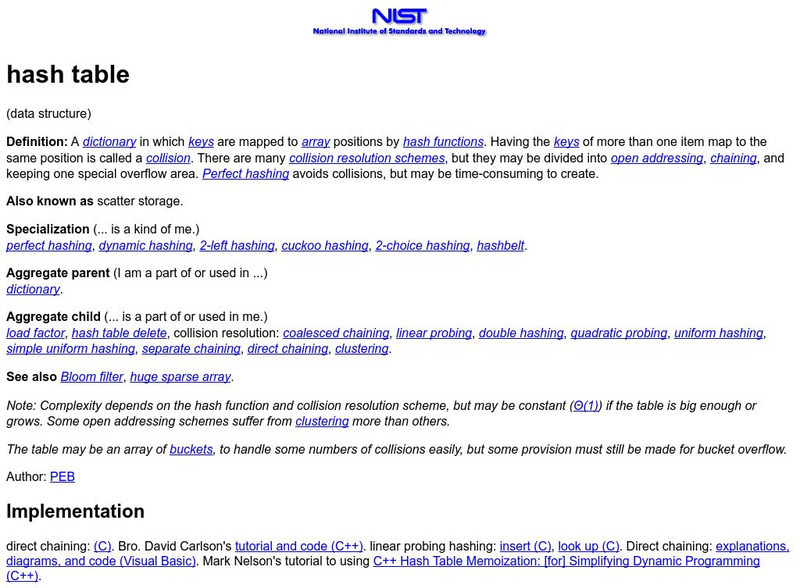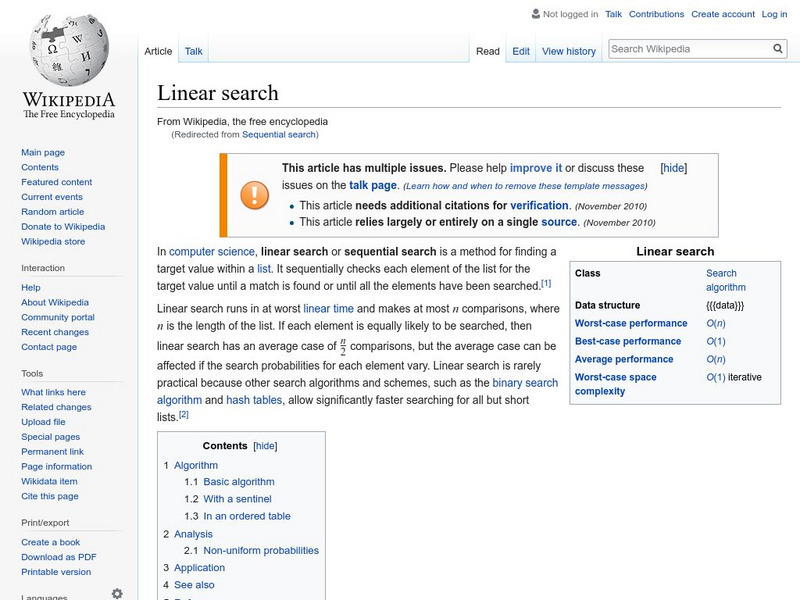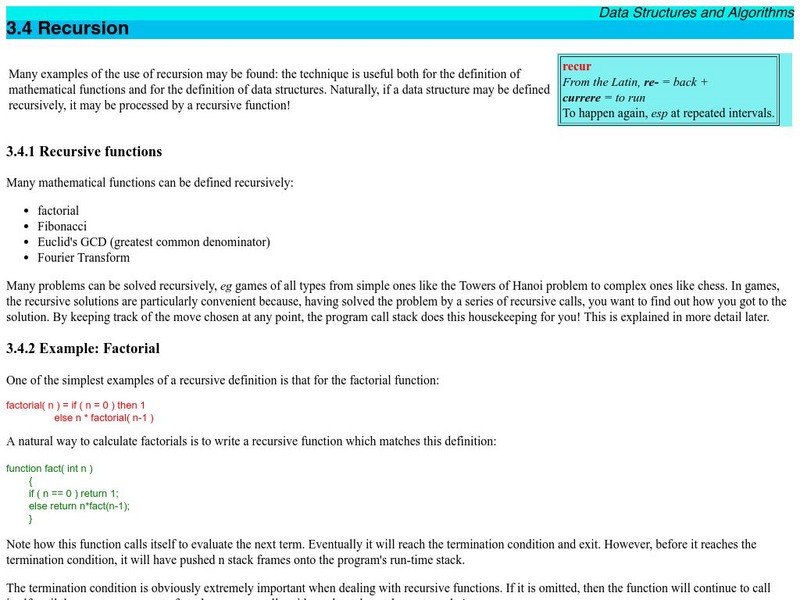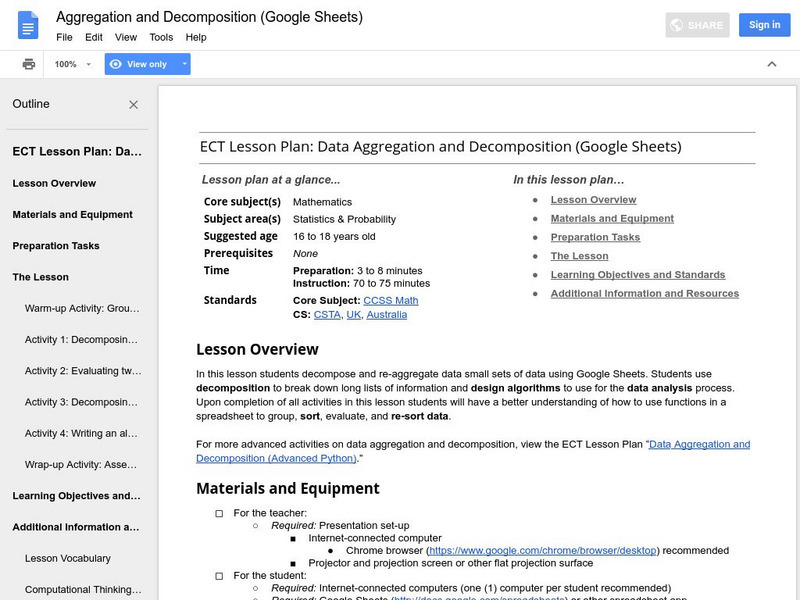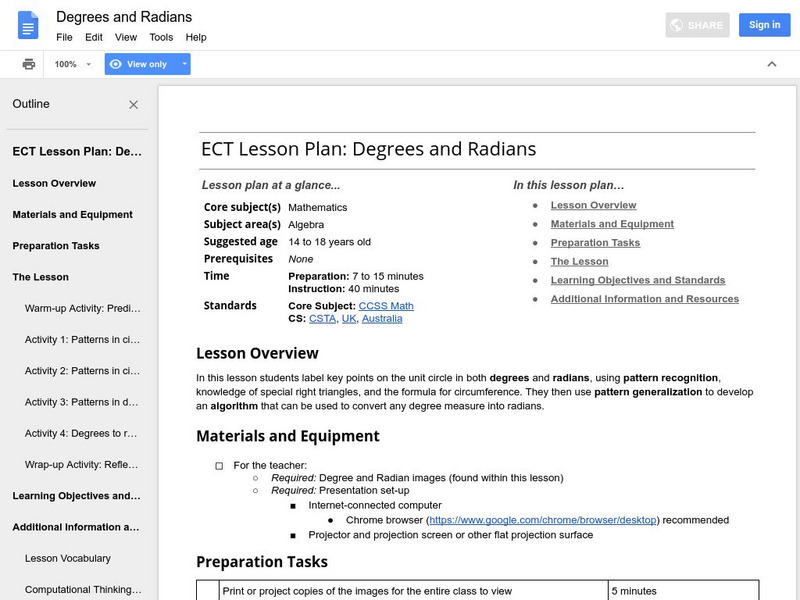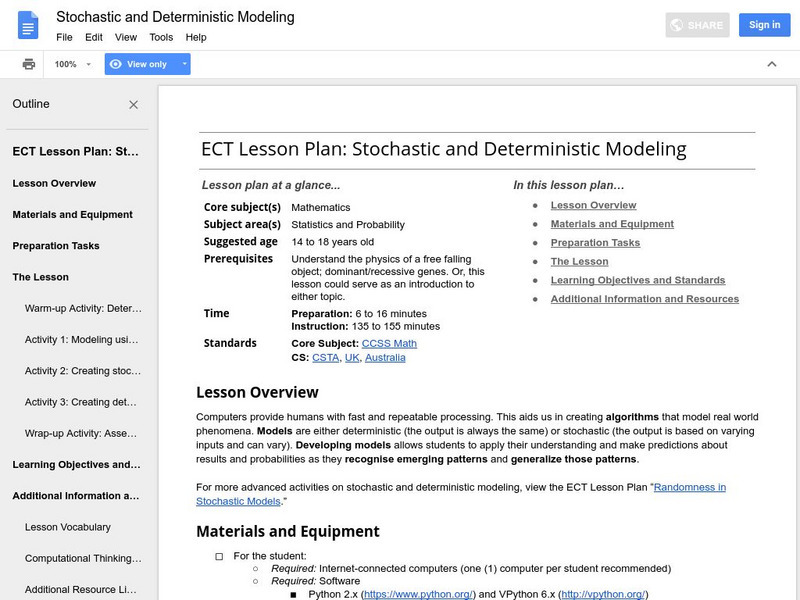National Institute of Standards and Technology (NIST)
Dictionary of Algorithms and Data Structures: Set
The DADS description of the set abstract data type.
National Institute of Standards and Technology (NIST)
Dictionary of Algorithms and Data Structures: Hash Table
A description of the hash table data structure.
National Institute of Standards and Technology (NIST)
Dictionary of Algorithms and Data Structures: Abstract Data Type
The DADS description of the dictionary abstract data type.
National Council of Teachers of Mathematics
Nctm: Figure This: Monday's Child
Do you know what day of the week were you born? You can find the exact day when you try this math challenge that explores problem solving with algorithms. Find out how scientist and statisticians use algorithms in their jobs. A one page...
Other
Intersecting Convex Polygons the Algorithm
This site talks about how to check for the intersection of polygons. Computer programs calculating intersections are presented.
Khan Academy
Khan Academy: Challenge: Is a String a Palindrome?
Practice problems involving recursive algorithms.
Khan Academy
Khan Academy: Selection Sort Pseudocode
An overview of the algorithm selection sort is given.
Khan Academy
Khan Academy: Route Finding
Recognition of the importance of algorithms in everyday life is illustrated.
Khan Academy
Khan Academy: Categorizing Run Time Efficiency
Understanding the run efficiency time of algorithms and why timing is important.
Khan Academy
Khan Academy: Representing Graphs
There are several ways to represent graphs, each with its advantages and disadvantages. Some situations, or algorithms that we want to run with graphs as input, call for one representation, and others call for a different representation....
Khan Academy
Khan Academy: Undecidable Problems
Problems a computer can never solve are called "undecidable problems". No algorithm exist that can answer the problem on all inputs.
Khan Academy
Khan Academy: Implementing Binary Search of an Array
A description of algorithms in pseudocode for binaray searches.
Khan Academy
Khan Academy: Functions in Asymptotic Notation
A discussion of asymptotic notation in relation to the rate of growth of an algorithm's running time.
Khan Academy
Khan Academy: Linear Time Merging
The linear-time merge function of an algorithm is illustrated.
Khan Academy
Khan Academy: Insertion Sort Pseudocode
An explanation of insertion sort into an algorithm.
Wikimedia
Wikipedia: Sequential Search
Provides a brief definition of a sequential search in the context of computer science. A short example is also provided.
Science Buddies
Science Buddies: Artificial Intelligence Teaching a Computer to Play Tic Tac Toe
This is a more challenging JavaScript project. You will have to figure out a way to translate game strategy into a computer algorithm. Directions will show you how to create a working Tic-Tac-Toe board on a webpage. Just by showing the...
Other
Interactive Data Structure Visualizations: Binary Tree Traversals
A great visualization / animation tool that illustrates the different traversal algorithms used with binary trees.
University of Auckland School of Computer Science
Morris: Recursion
A description of the algorithm technique known as recursion.
University of Auckland School of Computer Science
Morris: Sorting
A description of simple sorting algorithms such as insertion and bubble sorts.
Google
Google for Education: Data Aggregation and Decomposition (Excel)
By using Microsoft Excel, students collect, decompose, and re-aggregate class data. Students use computational thinking skills by decomposing long lists of information and writing basic algorithms to help analyze data.
Google
Google for Education: Degrees and Radians
Students label key points on the unit circle in both radians and degrees. They count their way around the circle in 30-degree increments, and then again in increments of radians. Finally, students go through a similar process for angles...
Google
Google for Education: Stochastic and Deterministic Modeling
Computers provide humans with fast and repeatable processing to create algorithms that model real world phenomena. Developing models allows students to apply their understanding and make predictions.
Other popular searches
- Numerical Algorithms
- Division Algorithm
- Multiplication Algorithms
- Addition With Algorithms
- Addition Algorithms
- Subtraction Algorithms
- Standard Algorithm
- Math With Algorithms
- Partial Products Algorithm
- Partial Sums Algorithm
- Adding Integers Algorithm
- Dividing Algorithm



